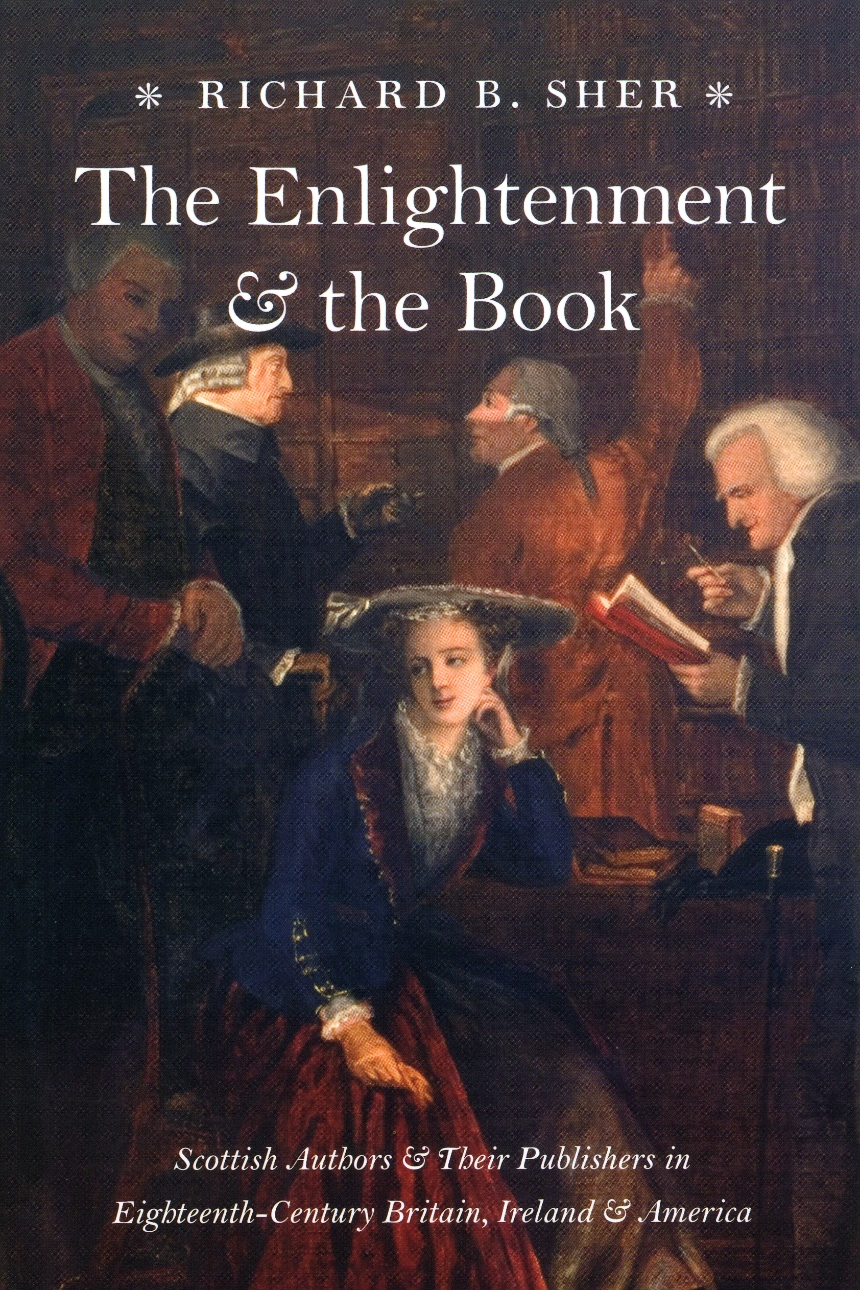The Enlightenment and the Book
Scottish Authors and Their Publishers in Eighteenth-Century Britain, Ireland, and America
The Enlightenment and the Book
Scottish Authors and Their Publishers in Eighteenth-Century Britain, Ireland, and America
The late eighteenth century witnessed an explosion of intellectual activity in Scotland by such luminaries as David Hume, Adam Smith, Hugh Blair, William Robertson, Adam Ferguson, James Boswell, and Robert Burns. And the books written by these seminal thinkers made a significant mark during their time in almost every field of polite literature and higher learning throughout Britain, Europe, and the Americas.
In this magisterial history, Richard B. Sher breaks new ground for our understanding of the Enlightenment and the forgotten role of publishing during that period. The Enlightenment and the Book seeks to remedy the common misperception that such classics as The Wealth of Nations and The Life of Samuel Johnson were written by authors who eyed their publishers as minor functionaries in their profession. To the contrary, Sher shows how the process of bookmaking during the late eighteenth-century involved a deeply complex partnership between authors and their publishers, one in which writers saw the book industry not only as pivotal in the dissemination of their ideas, but also as crucial to their dreams of fame and monetary gain. Similarly, Sher demonstrates that publishers were involved in the project of bookmaking in order to advance human knowledge as well as to accumulate profits.
The Enlightenment and the Book explores this tension between creativity and commerce that still exists in scholarly publishing today. Lavishly illustrated and elegantly conceived, it will be must reading for anyone interested in the history of the book or the production and diffusion of Enlightenment thought.
842 pages | 45 halftones, 16 line drawings, 7 tables | 6 x 9 | © 2007
Guides, Manuals, and Reference: Books on Books
History: British and Irish History
Literature and Literary Criticism: British and Irish Literature
Reviews
Table of Contents
Abbreviations
Preface
Author’s Note
Introduction
Toward a Book History of the Scottish Enlightenment
Designs and Disclaimers
Part I. Scottish Authors in a World of Books
1. Composing the Scottish Enlightenment
Progress through Print
Building a Database of Scottish Enlightenment Authors and Books
2. Identity and Diversity among Scottish Authors
The Social Contexts of Authorship
Unity and Representation
3. The Rewards of Authorship
Patrons, Publishers, and Places
Copy Money and Its Uses
Part II. Publishing the Scottish Enlightenment in London and Edinburgh
4. Forging the London–Edinburgh Publishing Axis
The Framework of Collaborative Publishing
The Founding Publishers and Their Firms
5. The Heyday of Scottish Enlightenment Publishing
The House of Strahan and Cadell
Successors and Rivals
6. The Achievement of William Creech
The Career of a Bookseller
The Reputation of a Bookseller
Part III. Reprinting the Scottish Enlightenment in Dublin and Philadelphia
7. The Rise and Fall of Irish Reprinting
Publishers or Pirates?
In the Company of Dublin Booksellers
8. Making Scottish Books in America, 1770–1784
The Scottish Enlightenment and the American Book Trade
The Emergence of Scottish Enlightenment Reprinting in America
9. “A More Extensive Diffusion of Useful Knowledge”: Philadelphia, 1784–1800
Atlantic Crossings: Carey, Dobson, Young, and Campbell
Immigrant Booksellers and Scotch Learning
Conclusion
The Disintegration of the London–Edinburgh Publishing Axis
The Pattern of Scottish Enlightenment Book History
Bibliography
Index
Awards
Economic and Social History Society of Scotland: Frank Watson Book Prize
Won
American Historical Association: Leo Gershoy Award
Won
